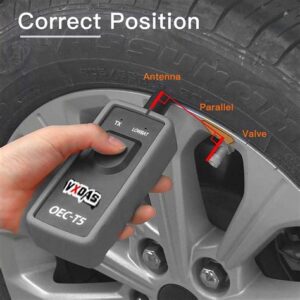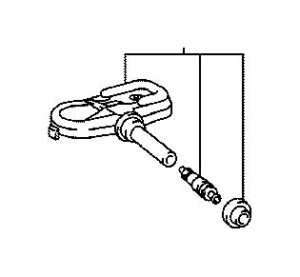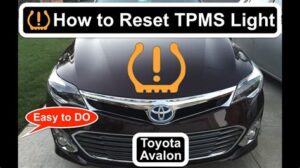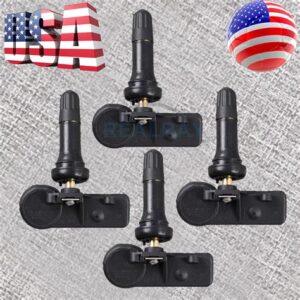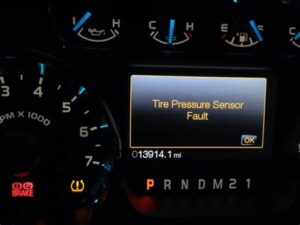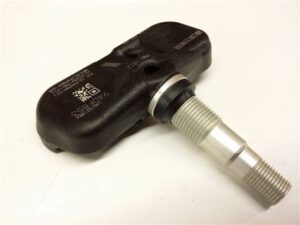Explore tire pressure sensors: their importance, Costco’s options, installation tips, and the benefits of upgrading for optimal safety and performance.When it comes to vehicle safety and performance, the importance of maintaining correct tire pressure cannot be overstated. Tire pressure sensors play a critical role in alerting drivers to any discrepancies, ensuring a smoother ride and improved fuel efficiency. In this blog post, we’ll delve into the world of tire pressure sensors, starting with a fundamental understanding of how they function and why they matter. We’ll explore Costco’s impressive range of tire sensors, share valuable installation and maintenance tips, and discuss the myriad benefits of upgrading your tire sensors. Whether you’re a seasoned driver or a novice, this guide will equip you with the knowledge you need to make informed choices for your vehicle’s tire health. Let’s dive in!
Understanding Tire Pressure Sensors
Tire pressure sensors are essential components of modern vehicles, providing crucial data about tire health and safety. These sensors monitor the air pressure within the tires, ensuring that they are inflated to optimal levels for safe driving. Below, we delve deep into the functionality and significance of these sensors.
What are Tire Pressure Sensors?
Tire Pressure Monitoring Systems (TPMS) utilize pressure sensors to continuously track tire inflation. There are two types of TPMS:
- Direct TPMS: Uses pressure sensors mounted inside the tire to provide accurate real-time readings.
- Indirect TPMS: Relies on the vehicle’s ABS (anti-lock braking system) to estimate tire pressure by measuring wheel speed.
Importance of Tire Pressure Sensors
The role of tire pressure sensors extends beyond mere convenience:
- Enhanced Safety: Proper tire pressure reduces the risk of blowouts and accidents, ensuring safer journeys.
- Fuel Efficiency: Correctly inflated tires improve fuel economy, preventing unnecessary fuel consumption.
- Tire Longevity: Maintaining optimal tire pressure extends tire life, saving you money on replacements.
How Tire Pressure Sensors Work
Tire pressure sensors work by using a combination of pressure transducers and wireless technology. When tire pressure drops below a predetermined threshold, the sensor triggers a warning light in the vehicle, alerting the driver to check tire inflation.
Regular monitoring of tire pressure can lead to significant savings in fuel costs and tire replacements. – Automotive Expert
Final Thoughts
Understanding tire pressure sensors is vital for every vehicle owner. By keeping an eye on your tire pressure, you not only ensure your safety but also enhance your vehicle’s performance and efficiency.
The Importance of Proper Inflation
Maintaining proper tire pressure is critical not only for vehicle performance but also for safety and fuel efficiency. Here are several reasons why proper inflation is essential:
- Enhanced Safety: Under-inflated tires can lead to a higher risk of blowouts, while over-inflated tires can cause reduced traction. By keeping tires at the recommended pressure, you significantly lower the chances of tire-related incidents.
- Improved Fuel Efficiency: Tires that are inflated to the correct pressure reduce rolling resistance, which can enhance fuel economy. Studies have shown that proper inflation can improve gas mileage by up to 3%.
- Extended Tire Life: Both under-inflation and over-inflation can lead to uneven wear on tires. Maintaining optimal tire pressure ensures that the tires wear evenly, thus extending their lifespan and saving you money in the long run.
- Better Handling and Performance: Properly inflated tires offer improved handling and braking performance, essential for safe driving. Whether you’re navigating winding roads or driving in adverse weather, tire performance is crucial.
To help you keep track of your tire pressure, Costco’s tire pressure sensors can be a beneficial addition to your vehicle. These devices not only alert you when tire pressure is low but also ensure you maintain the proper levels for all four tires.
Tire pressure monitoring is not just a matter of preference; it’s a matter of safety and efficiency.
Regularly check your tire pressure and make adjustments as necessary to enjoy the full benefits of proper inflation.
Costco’s Range of Tire Sensors
When it comes to maintaining your vehicle, tire pressure sensors play a crucial role in ensuring safety and efficiency on the road. Costco offers a variety of tire sensors that cater to different needs and preferences. Here’s an overview of what you can find in their range:
| Sensor Type | Key Features | Price Range |
|---|---|---|
| Direct Tire Pressure Sensors | Measures pressure inside the tire. | $60 – $120 |
| Indirect Tire Pressure Sensors | Uses ABS wheel speed sensors to estimate tire pressure. | $40 – $80 |
| Valve Stem Sensors | Easy installation with a direct fit to the valve stem. | $50 – $110 |
Choosing the right tire pressure sensor is essential to maintain ideal tire pressure, which can improve fuel efficiency and provide a safer driving experience. Costco ensures that their products meet high-quality standards for durability and performance, making them a reliable choice for consumers.
In addition to a broad range of tire pressure sensors, Costco often provides a warranty on their products, which adds an extra layer of assurance. Customers can explore various options in-store or online and benefit from the expertise of Costco’s staff in helping them select the best sensor for their vehicle.
“Maintaining proper tire pressure is essential for vehicle safety and longevity.”
Whether you’re looking to replace an old sensor or upgrade your system, Costco is a great destination to consider for your tire pressure sensor needs.
Installation and Maintenance Tips
When it comes to maintaining your vehicle, ensuring the proper function of your tire pressure sensors is crucial. Costco offers a range of tire sensors, but proper installation and maintenance are key to ensuring their long-lasting performance. Here are some essential tips for installation and maintenance:
Installation Tips
- Read the Manufacturer’s Instructions: Always start by consulting the installation guide provided by the manufacturer. This ensures you adhere to specific requirements.
- Prepare the Tires: Before installing new sensors, ensure your tires are clean and free from debris. This helps achieve a proper seal.
- Check Compatibility: Ensure the tire sensors you purchase are compatible with your vehicle’s make and model to avoid any functionality issues.
- Hire a Professional: If you’re unfamiliar with tire sensor installation, consider hiring a professional. Incorrect installation could lead to sensor failure.
Maintenance Tips
Maintaining your tire pressure sensors is as important as the initial installation:
- Regularly Check Tire Pressure: Use a reliable tire pressure gauge to check your tire pressure at least once a month.
- Monitor Sensor Alerts: Pay attention to any alerts from your sensor system indicating low tire pressure. Address these issues promptly.
- Replace Batteries as Needed: Some tire sensors come with replaceable batteries. Make it a routine to check and replace them as indicated by your sensor.
- Inspect for Damage: Regularly inspect your tires and sensors for any signs of wear or damage. Early detection can save you from costly repairs.
When to Seek Professional Help
If you experience recurring issues with your tire pressure sensors or cannot resolve pressure warnings, seeking help from a qualified mechanic or tire specialist is advisable.
By following these installation and maintenance tips, you can ensure your Costco tire pressure sensors function correctly and contribute to a safer driving experience.
Benefits of Upgrading Your Tire Sensors
Upgrading your tire pressure sensors can significantly enhance both the safety and performance of your vehicle. Here are several benefits to consider:
- Improved Accuracy: Newer tire sensors are designed to provide more accurate readings, ensuring that you maintain optimal tire pressure. This can lead to better handling and reduced tire wear.
- Enhanced Safety: Properly inflated tires are vital for vehicle safety. By upgrading your sensors, you decrease the risk of blowouts or accidents caused by under-inflation.
- Fuel Efficiency: Maintaining the right tire pressure can improve your vehicle’s fuel efficiency. Upgrading your sensors helps ensure that your tires are always at their optimal pressure, which can save you money on gas.
- Advanced Features: Many modern tire sensors come with additional features such as real-time monitoring, smartphone connectivity, and alerts for low tire pressure, making it easier to keep track of your tire health.
- Longer Tire Life: Consistent and accurate monitoring can prolong the lifespan of your tires. When tires are properly inflated, they wear evenly, reducing the need for early replacements.
In summary, upgrading your tire pressure sensors is not just about having the latest technology; it’s an investment in your vehicle’s safety, performance, and longevity. Consider exploring the available options at Costco to find the best fit for your needs.
Frequently Asked Questions
What is a tire pressure sensor?
A tire pressure sensor is a device that monitors the air pressure in a vehicle’s tires and alerts the driver if the pressure falls below a certain threshold.
How does the tire pressure monitoring system (TPMS) work?
The TPMS uses sensors installed in each tire to measure air pressure and send this data to the vehicle’s onboard computer. If a tire’s pressure is too low, a warning light on the dashboard alerts the driver.
Can I buy tire pressure sensors at Costco?
Yes, Costco typically sells tire pressure sensors as part of their tire services, which may include installation and maintenance.
Why is tire pressure important?
Proper tire pressure is essential for vehicle safety, fuel efficiency, and tire longevity. Under-inflated tires can lead to poor handling and increased wear, while over-inflated tires can cause blowouts.
How do I know if my tire pressure sensor is malfunctioning?
Signs of a malfunctioning tire pressure sensor include the TPMS light staying on or flashing, inaccurate readings, or error messages on the vehicle’s display.
What should I do if my tire pressure light comes on?
If your tire pressure light comes on, check your tire pressures immediately using a gauge. Inflate the tires to the recommended pressure or visit a tire service center for inspection.
Can I reset the tire pressure sensor myself?
In most vehicles, you can reset the tire pressure sensor by following the manufacturer’s instructions, which usually involve driving at a certain speed for a specific time or pressing a reset button.
